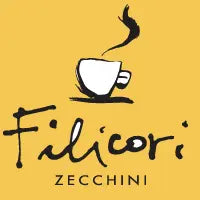We often hear people speak about organic coffee, a product of the highest quality and, above all, produced in full respect of the environment in which it is grown.
What guarantees are offered by the companies importing organic coffee and what checks are carried out on the production chain?
Let’s find out more about the cultivation, the mechanisms regulating the importing of these products, and the processing in the Italian coffee roasting plants.
The principles of organic agriculture
Like all organic products, coffee must respect well-defined principles, established by the International Federation of Organic Agriculture (I.F.O.A.M.).
Organic agriculture aims to transform companies into self-sufficient agricultural systems as much as possible by using local resources.
It is of fundamental importance that the natural fertility of the land is protected: the organic cultivation method avoids every type of pollution determined by agricultural techniques.
In this way foods of a high nutritional quality can be produced without using fertilizers, herbicides, insecticides and other chemically synthesized substances.
Converting land from traditional agriculture into organic agriculture is not an immediate process: to obtain certification, it takes at least 2 years for arable crops and 3 years for perennial crops.
The production chain of organic coffee
How many checks are the producers, exporters and importers of organic products subject to? A huge number.
To guarantee that all the rules and regulations are adhered to, every party involved in the organic production chain can receive inspections from the Accredited Controlling Bodies.
In this way, the traceability of the product and the absence of any residues of pesticides and other chemical products can be checked, via multi-residue analysis of on-the-spot samples.
First, the products classified as organic must respect the European regulations.
In the case of coffee, which is not produced within the European Union, the import companies must apply to operating companies (these are usually cooperatives) which hold a valid and current certificate that can vouch for the compliance of the regulations in the country of production with those in force in Europe. Before purchasing the product, importers will usually request that samples be sent, which are then analyzed to guarantee the quality of the coffee.
The checks on imported organic coffee
After purchasing a batch of organic coffee, the importing companies must communicate certain information to the Ministry of Agriculture and Forestry. This communication occurs using the S.I.A.N. system (National Agricultural Information System) and concerns:
- The arrival date of the goods
- The port of entry
- the name of the supplier
- the product imported and the quantity
In this way, the Ministry can organize checks upon arrival of the ships in the Italian port although, in the case of coffee, it is very common for the same import company to request analyses of the product purchased, to have further guarantees.
The risk of contamination and preventative measures
To guarantee the quality of the product, it is extremely important that there is no contact between the organic coffee and traditional coffee.
All the phases, from the transport to the storage, must be carried out under strict controls.
Every Italian import company must have a Preventative measures manual, written by a Consultant from the agri-food sector, in which the following are indicated:
- the type of business activity carried out by the company
- the measures adopted to avoid any contamination of the product
- the measures to be adopted in case of accidental contamination
Based on these indications, after arrival at the port and any checks, the organic coffee is transported to the warehouses of the import company, always keeping the organic and traditional products separate; furthermore, the wording “organic” must always be present and clearly visible to allow easy identification of the product.
In the warehouse, the coffee is stored in a specific area awaiting processing. Only scrupulous application of these measures guarantees that the final product, destined for the consumer, is organic and thus may obtain the certification.
Roasting and packing
When organic coffee arrives in the warehouse, it is kept in a reserved area, until it is ready to be roasted, which happens using sanitized systems (the sanitation operation is carried out every evening).
Furthermore, to eliminate any risk of contamination with any substances which are not allowed in organic agriculture, some companies, such as Filicori Zecchini, earmark the first batch through the system, ie. that which is roasted first, for the traditional coffee market.
At this point, the coffee is ready to be packaged in packs which are obliged to display, in a clear and recognizable way, the indication “organic”, which guarantees the quality of the product to the final consumer and allows him/her to recognize it.
As far as collective catering is concerned, to be able to offer organic coffee, it is important to maintain that same separation from the traditional product along the whole production chain, which means being equipped with separate machines for the two types of coffee.
The companies which use only organic products can also request certification from a private Control Body, which includes scrupulous specifications.
Labeling of Organic products
On organic products, the labels, besides being in line with current regulations (Reg. UE 1169/2011), are obliged to show all references to the method of organic production and have prior approval from their own Control Body before being allowed to trade commercially.
The indication “organic” or “from organic agriculture” appears in the trade name of the product when at least 95% of the ingredients of agricultural origin are organic.
It is obligatory to show the Community logo on the packaging of organic products and the label must show the code number of the Control Body and the code of the operator, and the indication of the place in which the agricultural raw materials that the product is made of were grown.
As we have just seen, the production chain of organic coffee undergoes specific and scrupulous checks to ensure the origins of the product and protect it from any potential contamination, even accidental.
Did you know about these steps?
 Europe
Europe



